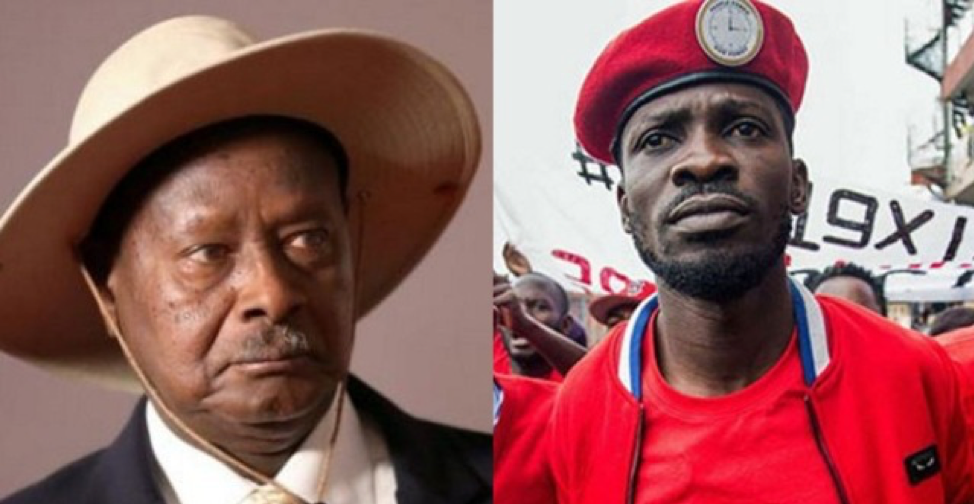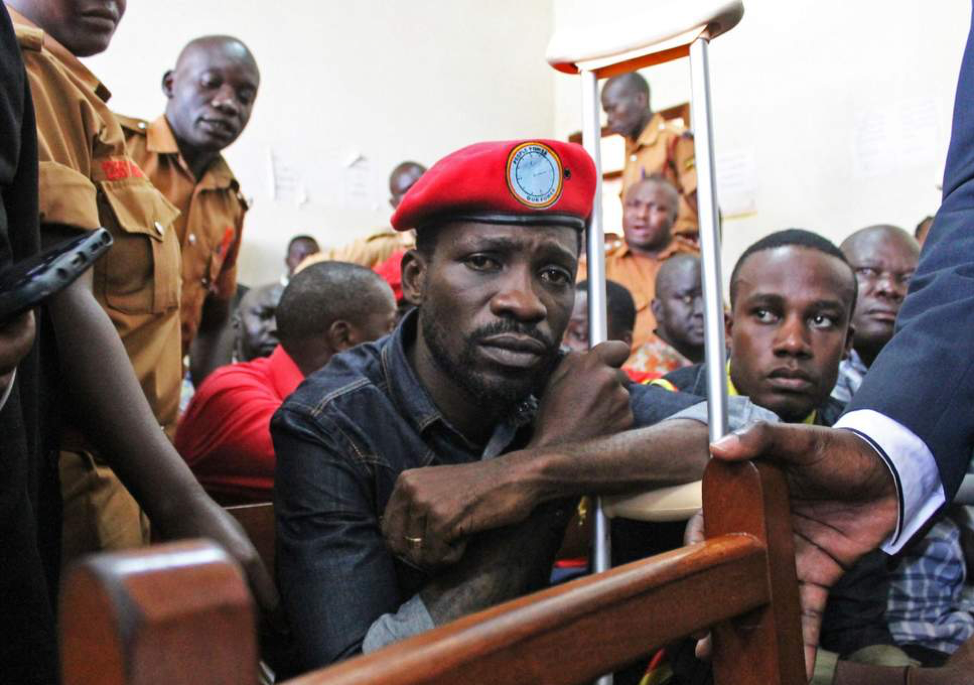Shawn Zhang
On January 29, 1986, when 4-year-old Robert Kyagulanyi was living with his nine siblings and single mother in Kamwokya, one of the worst slums of Kampala, Yoweri Museveni was sworn in as the new president of Uganda. This election followed a 6-year civil war, capping decades of tyranny under Idi Amin and Milton Obote. Museveni promised a return to democracy to the crowds of thousands outside the Ugandan Parliament: “The people of Africa, the people of Uganda, are entitled to a democratic government. It is not a favour from any regime. The sovereign people must be the public, not the government.”
After 33 years in power, however, President Museveni still refuses to deliver on this promise. He removed the presidential age limit of 75 from the country’s constitution, which will allow him to maintain presidency for life. Some observers fear that President Museveni will pass the presidency on to his son, Muhoozi Kainerugaba, who has rapidly risen to the second highest rank in the Ugandan army. President Museveni and his son have further transformed the Presidential Protection Unit into the Security Forces Command, a formidable loyalist troop, which some see as a parallel army tasked with keeping President Museveni in power. Meanwhile, Uganda is ranked among the most corrupt countries in the world.
President Museveni’s rule seemed unshakable until the rise of Robert Kyagulanyi, who is now known by his stage name, Bobi Wine. Before entering into politics, Robert, now Bobi, had already gained fame across the country as a reggae star. His music won him the reputation as “Ghetto President“, as it carries a message that resonates with ordinary people, especially the country’s powerless and voiceless youth.
“See our leaders become misleaders. And see our mentors become tormentors. Freedom fighters become dictators. They look upon the youth and say we’re destructors.” These lyrics are from Bobi’s song Freedom, which has been banned in Uganda. Uganda is among the youngest countries in the world, with an average age of 16, yet young Ugandans lack opportunities to lift them out of poverty, with youth unemployment rates of over 50%. Moreover, there are few opportunities for formal political engagement when the President and his NRM party appear poised to rule indefinitely. It’s thus no surprise that Bobi Wine’s socially conscious music has mobilized young Ugandans. After stepping into politics in 2016, Bobi Wine rallied more and more young people with his slogan “People Power”, eventually leading to his landslide victory in the June 2017 Kyadondo East parliamentary by-election.

President Museveni has reason to fear Bobi Wine and the rising young Ugandans. In October 2017, Bobi Wine led the “Togikwatako” (do not touch) movement, to protest the removal of age limit for the president. In July 2018, he launched a protest against the imposition of a social media tax, which was introduced to end what Museveni called “gossip” on WhatsApp, Facebook and Twitter. Museveni’s NRM party lost three parliamentary by-elections after Wine campaigned for the opposition.
In August 2018, leading up to the Arua municipality by-elections, President Museveni finally decided to take actions on his “indisciplined grandson”. On orders of the President, Ugandan security forces, led by Special Forces Command, fired live bullets into Bobi Wine’s supporters, killed Bobi’s driver, Yasin Kawuma, stormed the hotel where Bobi was staying, and arrested and tortured Bobi and his colleagues. It is not entirely clear whether security forces intended to murder Bobi rather than his driver, but the mysterious fatal shooting has led Bobi to believe that he was in fact the intended target. Following this crackdown, security forces beat and tortured Bobi unconscious, before throwing him into military detention.
Bobi was later charged in a military court with illegal possession of weapons. In the hearing, which was closed to the public, his lawyer said that Bobi had been so “brutalised he cannot walk, he cannot stand, he can only sit with difficulty … It is hard to say whether he understands this and that.” The Ugandan Human Rights Commission also found Bobi’s face was swollen, that he was in pain, and that he required support to walk and had difficulty sitting and breathing. The Ad-hoc Committee designed to investigate the arrests associated with the Arua municipality by-elections observed that Bobi’s left lower body appeared paralyzed, that he spoke and breathed with difficulty, and that he sat with difficulty, seemingly unable to move his body by himself.

Bobi Wine was eventually released on bail after 14 days of detention and flew to the United States for medical treatment. His fight for the people of Uganda, however, continues. Bobi returned to Uganda, stating: “If I think about the dangers that face me, it is crazy to go back. But I want to be home. There are 40 million people who need hope, so I will go and meet them no matter what.” The Ugandan government responded again by carrying out acts of blatant violence against his supporters. Upon his return to Uganda, security forces attempted to disperse his supporters by charging down the street and attacking people indiscriminately. A disturbing video shows several soldiers cornering an unarmed fragile looking man and beating him up violently with herding sticks. After the soldiers left, the man managed to sit down slowly with blood all over his head. His eyes were full of pain and fear.
It is still too early to tell whether Bobi Wine can bring justice and dignity to Ugandans. What we do know, however is that, just as Bobi says, young Ugandans are demanding change; they’re demanding freedom. And for the first time, it’s within reach.
Shawn Zhang is a third-year law student and clinician with the International Justice and Human Rights Clinic at the Peter A. Allard School of Law at the University of British Columbia.